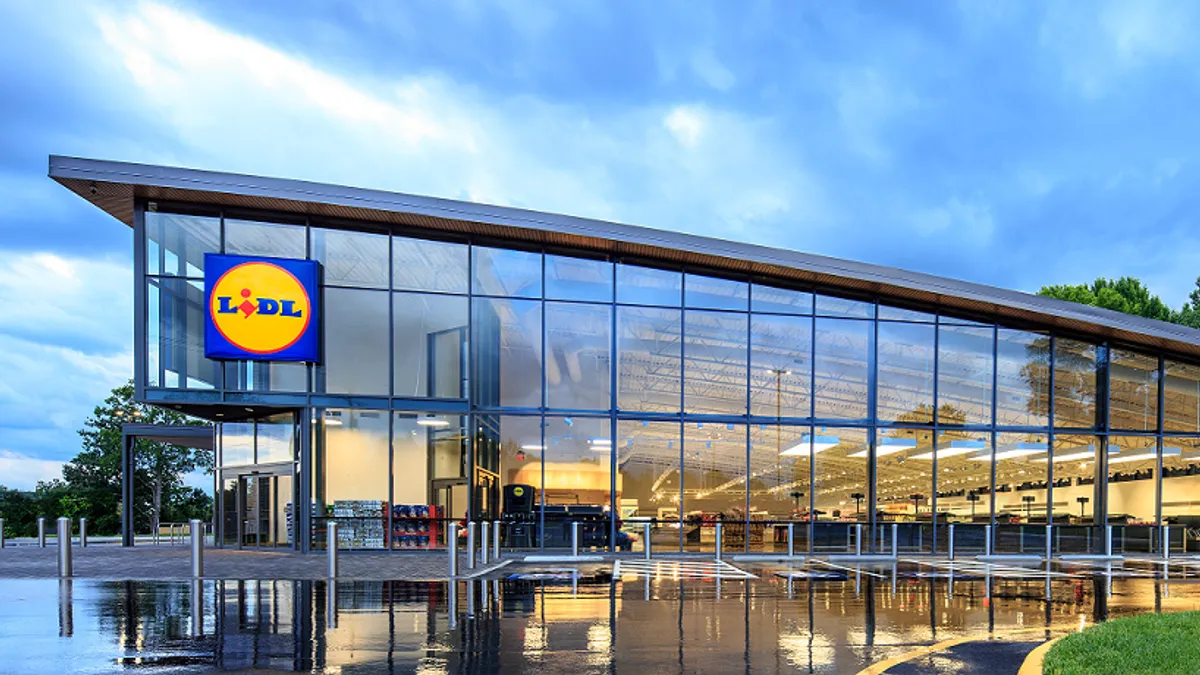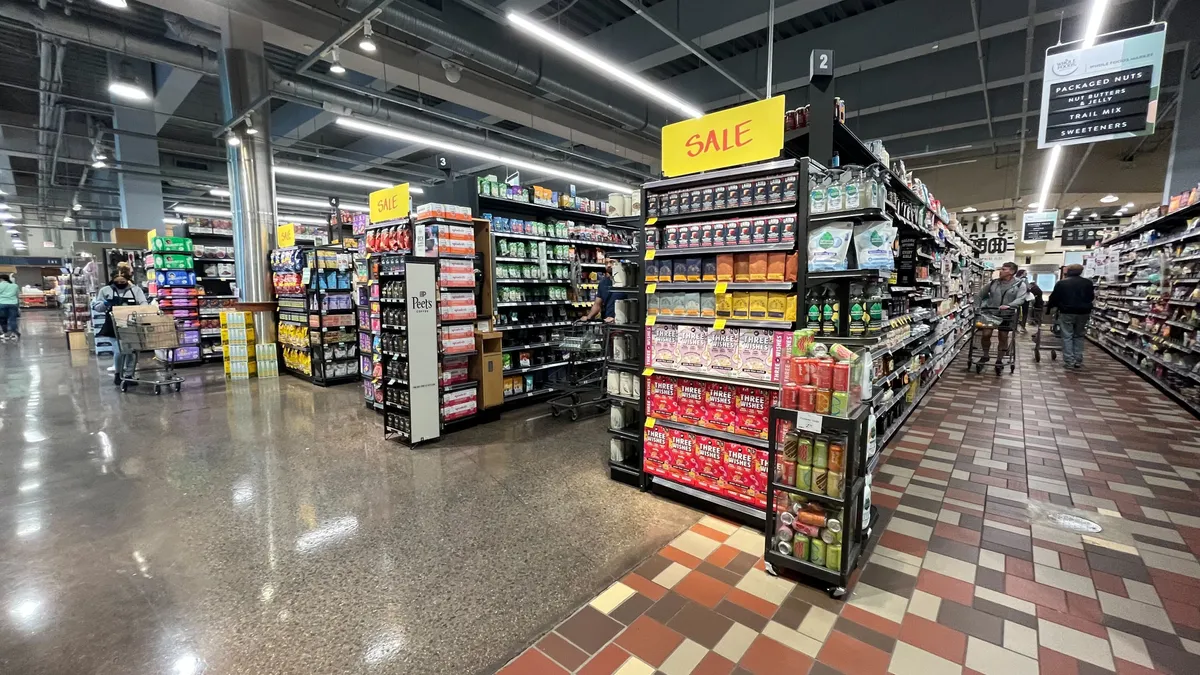Dive Brief:
- Lidl could claim $1 billion worth of business from grocers in North Carolina, South Carolina and Virginia, according to management consulting firm Oliver Wyman. The firm based its predictions off a survey of more than 500 consumers.
- The survey found 39% of respondents said they would shop at Lidl once a week or more, while 67% said they would shop at the retailer at least once. The study also found that 49% of consumers making more than a $75,000 salary are excited to shop at Lidl, compared to 48% who make under $25,000.
- Current Aldi shoppers are more likely to embrace Lidl’s shopping experience. Fifty two percent of these shoppers said they would shop regularly with Lidl, compared to 32% of non-Aldi shoppers.
Dive Insight:
When it opens its doors Thursday, Lidl stores will unveil a shopping experience many Americans haven’t seen before, including six aisles of mostly private-label products, few store employees and an off-the-wall assortment of nonfood items.
But as this survey from Oliver Wyman indicates, the foreignness of the concept shouldn’t dent the company’s success. The survey proved what mounting consumer research has shown in recent years: people are willing to try new products and new shopping experiences. It’s why Lidl’s entry comes at a fortuitous time for the retailer, and why many U.S. competitors are remodeling their stores and updating their product assortments.
With prices as much as 50% lower than traditional grocery competitors, the assumption has been that Lidl will appeal mostly to low-income consumers. The reality, however, is that shoppers up and down the income ladder like to save money. Indeed, nearly half of consumers surveyed that make more than $75,000 say they’re excited to shop at Lidl.
Similarly, the assumption that Lidl’s small number of employees and services could hurt it appears to be unfounded as well. “Concerns around fewer services for consumers and no deli or other service counters at Lidl were less of an issue for consumers,” Wyman noted in the survey results.
Lidl will likely draw most of its new customers in with its prices, then seal the deal with its product quality. It’s a model that will prove difficult for many retailers to match head-on — with one notable exception. Aldi, which yesterday announced a $3.4 billion store expansion plan, offers similarly low prices and a fast-improving store experience. The company is well ahead of Lidl in terms of store count, but the Wyman study shows Lidl could poach Aldi shoppers with its slightly larger format and bigger emphasis on fresh products.
Both discounters will also have their sights set on traditional grocers, who have updated their stores and adjusted their price positioning in recent months. As Oliver Wyman and other industry observers point out, the retailers that effectively differentiate themselves from Lidl will have the greatest chance of success.










